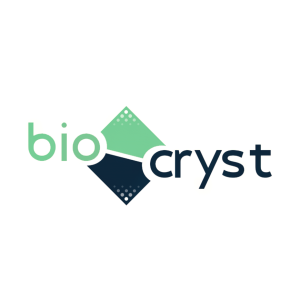FDA Grants Orphan Drug Designation for BCX9930 in PNH
BioCryst Pharmaceuticals (BCRX) has received Orphan Drug designation from the FDA for its oral Factor D inhibitor, BCX9930, aimed at treating paroxysmal nocturnal hemoglobinuria (PNH), a rare and severe blood disorder. This designation qualifies BCX9930 for development incentives like tax credits and market exclusivity. Additionally, BCX9930 has also been granted Fast Track designation. Dr. William Sheridan highlighted the unmet medical need BCX9930 addresses, signaling a commitment to advancing this treatment efficiently.
- Received FDA Orphan Drug designation for BCX9930, facilitating potential market entry.
- Qualifies for development incentives including tax credits and market exclusivity.
- Granted Fast Track designation, expediting the development process.
- FDA designations do not guarantee faster approval or marketing.
- Future clinical development outcomes for BCX9930 are uncertain.
Insights
Analyzing...
RESEARCH TRIANGLE PARK, N.C., Aug. 31, 2020 (GLOBE NEWSWIRE) -- BioCryst Pharmaceuticals, Inc. (Nasdaq:BCRX) today announced that the U.S. Food and Drug Administration (FDA) has granted Orphan Drug designation for its oral Factor D inhibitor, BCX9930, for the treatment of paroxysmal nocturnal hemoglobinuria (PNH).
According to the FDA, the Orphan Drug Designation Program provides orphan status to drugs and biologics which are defined as those intended for the safe and effective treatment, diagnosis or prevention of rare diseases/disorders that affect fewer than 200,000 people in the U.S.
Orphan Drug designation qualifies BCX9930 for various development incentives, including tax credits for certain clinical costs, a waiver of the new drug application fee and a designated period of market exclusivity following approval.
In addition to the Orphan Drug designation, the FDA also has granted Fast Track designation for BCX9930 in PNH.
“As an oral Factor D inhibitor monotherapy for PNH patients, BCX9930 would address a significant unmet medical need and we look forward to our discussions later this year with the FDA to inform how we advance this important medicine to patients with PNH and other complement-mediated diseases as quickly as possible,” said Dr. William Sheridan, chief medical officer of BioCryst.
About PNH
Paroxysmal nocturnal hemoglobinuria (PNH), is a rare, serious, and potentially life-threatening complement-mediated blood disease that causes red blood cells to rupture. The complement system is part of the body’s natural immune system and is responsible for helping the body eliminate microbes and damaged cells. Once activated, the complement system stimulates inflammation, phagocytosis and cell lysis. Excessive or uncontrolled activation of the complement system can cause severe, and potentially fatal, immune and inflammatory disorders, such as PNH.
Further information about PNH is available from the National Institutes of Health at https://ghr.nlm.nih.gov/condition/paroxysmal-nocturnal-hemoglobinuria
About BioCryst Pharmaceuticals
BioCryst Pharmaceuticals discovers novel, oral, small-molecule medicines that treat rare diseases in which significant unmet medical needs exist and an enzyme plays a key role in the biological pathway of the disease. BioCryst has several ongoing development programs including ORLADEYO™ (berotralstat), an oral treatment for hereditary angioedema, BCX9930, an oral Factor D inhibitor for the treatment of complement-mediated diseases, galidesivir, a potential treatment for COVID-19, Marburg virus disease and Yellow Fever, and BCX9250, an ALK-2 inhibitor for the treatment of fibrodysplasia ossificans progressiva. RAPIVAB® (peramivir injection), a viral neuraminidase inhibitor for the treatment of influenza, is BioCryst's first approved product and has received regulatory approval in the U.S., Canada, Australia, Japan, Taiwan, Korea and the European Union. Post-marketing commitments for RAPIVAB are ongoing. For more information, please visit the Company's website at www.BioCryst.com.
Forward-Looking Statements
This press release contains forward-looking statements, including statements regarding potential benefits associated with BCX9930 and Orphan Drug designation. These statements involve known and unknown risks, uncertainties and other factors which may cause any actual benefits to be materially different from those expressed or implied by the forward-looking statements. These statements reflect our current views and are subject to risks and uncertainties. Given these uncertainties, you should not place undue reliance on these forward-looking statements. Some of the factors that could affect the forward-looking statements contained herein include: Orphan Drug and Fast Track designations by the FDA may not lead to a faster development, regulatory review, or approval process with the FDA and does not increase the likelihood that BCX9930 will receive marketing approval; and ongoing and future preclinical and clinical development of BCX9930 may not have positive results. Please refer to the documents BioCryst files periodically with the Securities and Exchange Commission, specifically BioCryst’s most recent Annual Report on Form 10-K, Quarterly Reports on Form 10-Q, and Current Reports on Form 8-K, all of which identify important factors that could cause the actual results to differ materially from those contained in BioCryst’s forward-looking statements.
BCRXW
Contact:
John Bluth
+1 919 859 7910
jbluth@biocryst.com






